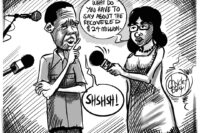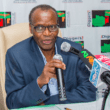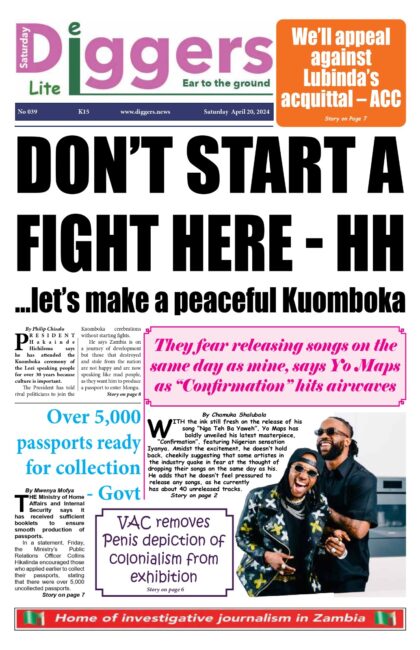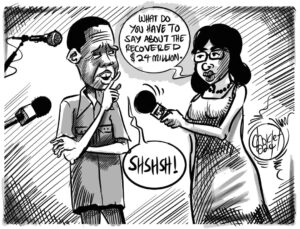University of Zambia Lecturer in the School of Law Sangwani Patrick Ng’ambi says banning social media should not be an option because the country already has adequate laws regulating freedom of expression.
In an article titled ‘Social Media and Freedom of Expression in Zambia’ presented at the LAZ AGM last week, Ng’ambi also noted that freedom of speech was inextricably linked to freedom of the press.
“In this article I contend that the laws of Zambia as they are already do enough to regulate freedom of expression. Our laws on Defamation for example, seek to strike a balance between an individual’s reputation on the one hand and the right to freely express oneself, including free press. In addition to this, there are other laws dealing with sedition, criminal defamation, defamation of the President and the spreading of false news. Given this fact, I conceive that the act of banning of social media does not arise,” Ng’ambi said.
“It could thus be concluded that freedom of speech is certainly a fundamental right and is inextricably linked to freedom of press. Even in the derogations contained in Article 20(3) it is clear that any such restrictions must be reasonably required. This can be contrasted with the European Convention of Human Rights which says it must be ‘necessary’. But even under our Constitution, reasonableness should entail that the response must be commensurate to the danger posed. Given the fact that we have all these laws heavily regulating freedom of expression in Zambia. A blanket ban on social media would be unnecessary and disproportionate to the danger actually posed, given the many weapons the system already has within its arsenal. The better way forward is to allow the law and enforcement institutions to take their course.”
He said whilst freedom of expression was not absolute, the danger of limiting it was that the truth could possibly be suppressed.
“Article 20(1) on the face of it seems very broad. From the provision, people are allowed to hold whatever opinions they wish without interference. They may also receive information, impart it and communicate ideas. A broad approach to freedom of expression plays a vital role in what is still a relatively young democracy. As we have seen from the Constitution, freedom of press is integral to freedom of expression. Without freedom of expression would be nothing more than a chimera. However, as we will see from the next subsection, freedom of expression is not an absolute right,” Ng’ambi said.
“Article 20(3) of the Constitution provides for various derogations, and allows provisions that are reasonably required inter alia to ‘protect the reputations, rights and freedoms of other persons’. It is upon this basis that the existent laws on defamation and other restrictions on free speech may be justified.”
On criminal defamation and defamation of the president, Ng’ambi said these provisions were unhealthy to democracy.
“Such a provision is ultimately insalubrious to our fledgling democracy because it stifles freedom of expression and freedom of press. It does not give any guidance as to what precisely amounts to an insult. Zambia is a democracy and the President is an elected and public figure. Between elections, he is to be accountable to the people. For the people and the press to hold him accountable, it is essential that they are allowed to do so without the fear of criminal sanctions hanging on their head for insulting the President,” he said.
“What is clear from the foregoing is that since one even risks being jailed for publishing defamatory subject matter either about private individuals or the President, the law as it stands does enough to regulate freedom of expression. For this reason, it is unnecessary to have an outright ban on social media.”
He also noted that the Constitution allowed the president to ban publications considered to be contrary to public interest, therefore banning social media was unnecessary.
“Section 53(1) of the Penal Code also empowers the Presidency absolute discretion to ban publications that it considers to be contrary to the public interest. As the case of Shamwana v Attorney-General illustrates, such a decision cannot be challenged in court. As we can see therefore, the President can ban any publication anyway and this cannot be challenged. This further underscores the point that freedom of expression is already regulated and therefore a blanket ban on social media would be superfluous,” said Ng’ambi.
“Publication of false news which is likely to cause fear and alarm to the public or disturb public peace renders one liable for up to three years imprisonment. This is provided in Section 67(1) of the Penal Code.”












